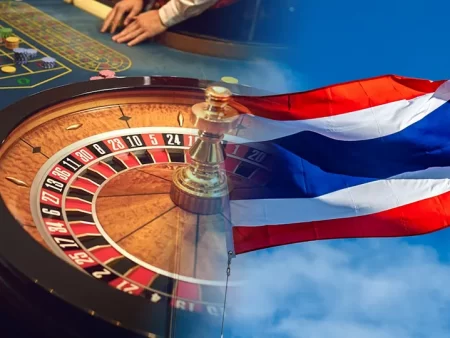The Thai government has made significant progress in its plan to legalize entertainment complexes that include casinos, as the Office of the Council of State (OCS) has finalized its review of the proposed bill. This move marks a crucial step toward the potential establishment of integrated entertainment centers aimed at boosting the economy and attracting tourism. However, the bill has sparked widespread debate among various stakeholders, with proponents emphasizing economic benefits while critics raise concerns about social repercussions and regulatory oversight.

Completion of Legal Review
Apacaff | The completion of the legal review by the OCS signals that the bill is one step closer to being presented before lawmakers for final consideration. To ensure transparency and public engagement, the government has scheduled an online public hearing from February 15 to March 1, 2025. During this period, citizens, industry experts, and advocacy groups will have the opportunity to voice their opinions, share concerns, and contribute suggestions on how the entertainment complex model should be implemented. The consultation aims to gather feedback from different perspectives, ensuring that the final draft of the bill aligns with both economic ambitions and social responsibilities.
Key Provisions of the Bill
The bill outlines the criteria for establishing entertainment complexes, which will consist of various facilities such as hotels, shopping malls, theatres, and meeting venues, with casinos forming only a small portion of the total infrastructure. To prevent gambling from becoming the primary focus, the legislation states that casino areas must not exceed 10% of the total land or building area of the complex. Furthermore, strict measures will be in place to ensure that casino spaces are physically separated from other entertainment facilities.
Identity verification protocols will also be a crucial component of the regulation, requiring all patrons to undergo thorough background checks before entering gambling areas. These measures aim to prevent underage gambling, money laundering, and other illicit activities that may arise from the operation of casino-based entertainment complexes.
Stakeholder Perspectives
While the bill has been crafted with economic and regulatory considerations in mind, various stakeholders have voiced differing opinions regarding its implications. Atavit Suwanpakdee, chairman of an advisory board to the Minister of Industry, has emphasized the need for clarity on the number of entertainment complexes that will be permitted and their regional distribution. According to Suwanpakdee, the government must carefully plan the allocation of licenses to ensure balanced economic growth and avoid oversaturation in specific areas.
On the other hand, Thanakorn Khomkrit, secretary-general of the Stop Gambling Foundation, has raised concerns about governance and the potential for regulatory loopholes. He argues that despite stringent measures, there remains a risk of casinos being exploited for illicit activities, including money laundering and organized crime. Similarly, academic expert Chittawan Chanagul, an economics lecturer at Kasetsart University, has pointed out that international studies have shown both positive and negative impacts of casinos, with social issues often emerging as a significant challenge. His research suggests that while economic benefits are evident, they must be weighed against potential increases in gambling addiction and financial distress among vulnerable populations.
Public Opposition and Actions
Opposition to the bill has been evident through organized protests and petitions submitted by groups such as the Network of Students and People for Reform of Thailand. These activists argue that casinos could lead to increased crime rates, corruption, and social instability. Protest leaders have also expressed doubts about the effectiveness of law enforcement in ensuring that gambling regulations are strictly followed. The concern is that rather than generating sustainable revenue for the state, casinos might become breeding grounds for money laundering and underground betting networks.
Despite these objections, the government has assured the public that the bill includes strong regulatory frameworks and monitoring mechanisms to mitigate potential risks. Authorities have also highlighted the role of international best practices in shaping Thailand’s approach to entertainment complexes, ensuring that they operate within ethical and legal boundaries.
Next Steps
Following the public consultation period, the feedback gathered will be reviewed, and necessary amendments may be made before the bill is submitted to the parliament for final approval. If passed, the new law will pave the way for the establishment of entertainment complexes, significantly impacting Thailand’s tourism and hospitality sectors.
The introduction of casinos within entertainment complexes is expected to attract high-spending tourists and foreign investments, boosting government revenue and creating new job opportunities. However, careful implementation and strict enforcement of regulations will be crucial in ensuring that the benefits outweigh potential social risks. As Thailand moves closer to legalizing entertainment complexes, the coming months will be pivotal in












